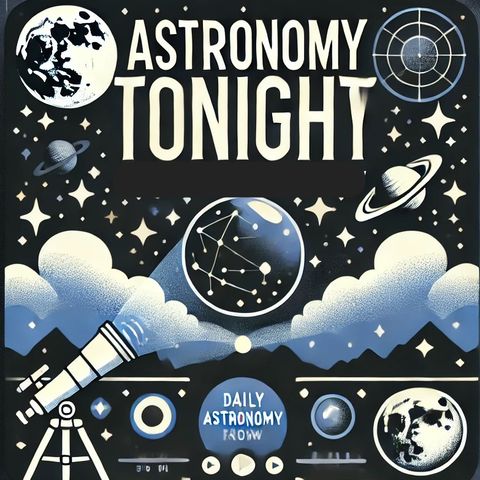Astronomy Tonight for - 11-21-2024

Download and listen anywhere
Download your favorite episodes and enjoy them, wherever you are! Sign up or log in now to access offline listening.
Astronomy Tonight for - 11-21-2024
This is an automatically generated transcript. Please note that complete accuracy is not guaranteed.
Description
Ah, November 21st! A date that twinkles with astronomical significance! Let me take you on a cosmic journey back to November 21, 1964 – a day that changed our understanding...
show moreOn this fateful day, astronomers at the Parkes Radio Telescope in Australia made a groundbreaking discovery. They detected the first pulsar ever observed! Now, you might be wondering, "What's a pulsar?" Well, buckle up, space cadet, because we're diving into some seriously stellar science!
A pulsar is essentially a rapidly rotating neutron star – the collapsed core of a massive star that has exploded as a supernova. These cosmic lighthouses emit beams of electromagnetic radiation that sweep across Earth like celestial beacons. Imagine a cosmic disco ball spinning at mind-boggling speeds, and you're getting close to the idea!
The first pulsar, dubbed CP 1919 (now known as PSR B1919+21), was discovered by Jocelyn Bell Burnell and Antony Hewish. At first, they thought the regular pulses might be signals from an alien civilization – how's that for an exciting possibility? They even nicknamed the signal LGM-1, for "Little Green Men"! Alas, it wasn't E.T. phoning home, but the discovery was no less extraordinary.
This pulsating powerhouse rotates about 1.337 seconds per revolution and emits radio waves in regular pulses. To put that into perspective, imagine if the Earth completed a full rotation in just over a second – you'd be experiencing some serious cosmic whiplash!
The discovery of pulsars opened up a whole new field of astrophysics. These stellar timekeepers have since been used to test Einstein's theory of general relativity, search for gravitational waves, and even create interstellar maps for potential alien civilizations (just in case those little green men are out there after all).
So, the next time you look up at the night sky on November 21st, give a little nod to the pulsars out there, faithfully blinking away in the cosmic darkness. Who knows? Maybe they're winking back at us, keepers of secrets we've yet to unravel in our grand cosmic adventure!
Information
| Author | QP-4 |
| Organization | William Corbin |
| Website | - |
| Tags |
Copyright 2024 - Spreaker Inc. an iHeartMedia Company
